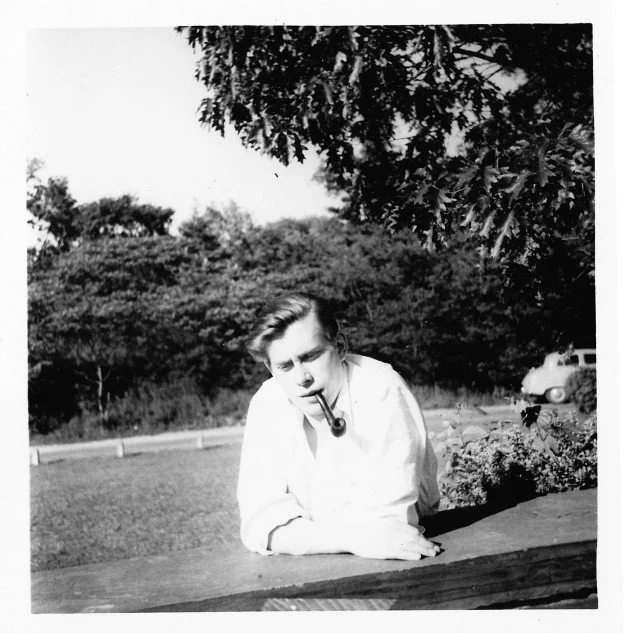I debated going to the No Kings rally in downtown Austin every day in June until the day it happened. My first anniversary cancer scans had come back clean the month before, and my energy levels were better than they had been in months. But early on the morning of the 14th, I saw Instagram news posts about the killings in Minnesota: two state representatives and their spouses shot, one representative and her husband dead.
I couldn’t get past those tragedies. They, along with the heat of late spring day in central Texas, were enough to derail any plans-in-formation. Now I just wanted to move in peace away from the chaos and into a more focused space of reflection. The neighborhood pool was the perfect place for me to do that.
It was still early when I arrived around 8AM. Only one or two others were there and all was stillness. Lowering myself into the water, I had a strange sense of déjà-vu, of having done this very thing in another place at the same time. And then it clicked: on Jun 14, 2002, I had done a morning swim also to distance myself from death. I’d just received a phone call my father had passed away and the world had gone out of joint.
I pushed off from the wall and began kicking. For a moment the synchronicity took me aback: swimming had not been an intended act of remembrance. Musing on the strangeness if it, I did my half mile then got out, wrapped a towel around my middle and decided to walk home via the neighborhood community garden. It seemed a practical thing to do: no second trip later in the afternoon just to check on the plot I’d been tending for the last two months.
A sudden, very destructive hailstorm had pounded our small community a few weeks before. The community garden had been decimated, and I wanted to make sure that the plants left on my plot were managing. One cherry tomato plant caged in chicken wire had survived. A small bell pepper plant and a second tomato plant, both of which had been denuded of leaves and branches, had as well. A flowering squash plant hadn’t been so lucky. Hailstones had crushed the stem, leaving the plant to wither away.
I wanted to see more green again. Zinnia sprouts growing up through the gravel walkway caught my eye. Transplanting them would not only mitigate the bareness but also make up for the loss of a zinnia in my home garden that I’d lost to the storm. Grabbing a trowel from the community shed, I dug up a few rogue zinnias—red, pink and orange— and planted them along the edges of my plot. My near-empty garden now looked back at me with a bright, lopsided smile.
Dirt-streaked and sweating, I went home, savoring the tiredness in my body. In the stillness of my house, I could not be bothered to do much more than wash up and work on a poem that had refused to let me finish writing it for more than a week. That poem—which was about my father—seemed more willing to let me write it that day: another strange synchronicity. By evening, the poem was done. When I woke up the next morning, it would be Father’s Day.
On a hunch and just before I shut down my computer for the night, I looked up the symbolic meaning of zinnias and learned they represented all types of meaningful relationships. My thoughts turned once again to my father when I also saw they were symbols of remembrance and of resilience. The wild-growing flowers I had adopted into my garden were nothing if not survivors. One of the plants showed signs of having been battered by hail; yet it had endured and lost nothing of its beauty or robustness. My father, a man who loved flowers, had been a survivor, too. The heart attack that killed him had been the last in a long line he had suffered since his first one at age 42.
It was all so strange, the interrelatedness of these events. Coincidence had bound them together, along with mortality, survival and new beginnings. The only thing that did not seem to “belong” in the narrative was the protest I had not attended, until I realized the connection. My father believed that men led and families followed because fathers were guardians of the castles, kings of their realm. The poem I had written had played with that idea through the metaphor of a rocking chair he loved and that I called his “rocking throne.”
That part of him, the authoritarian, was the part I disliked and at times rebelled against. Yet as autocratic as he could be, my father always gave me a little more leeway than he would others because he and I were more alike than not. Still, he never let me forget that the way I’d fuss in protest when anyone, including him, told me what to do might make my life harder than it had to be. Freedom had its price, he seemed to say. He was right, of course. And of course, I would spend my adult life paying for it.
Now an entire country was learning its cost all over again but rising to the occasion like zinnias that even the most furious storm could neither bend nor break.


